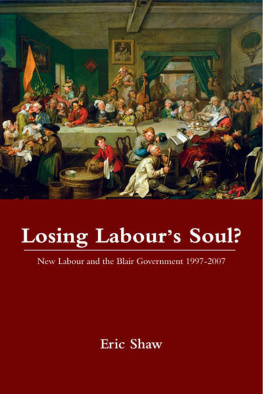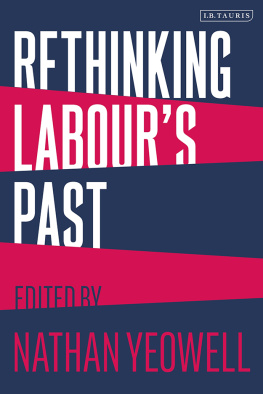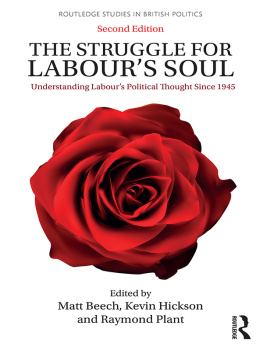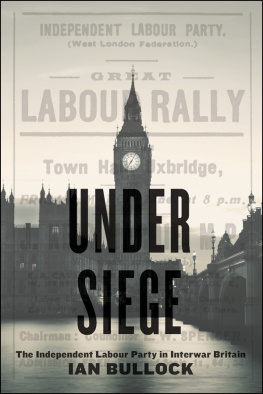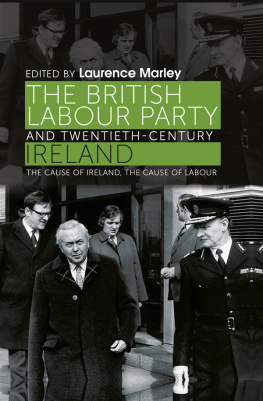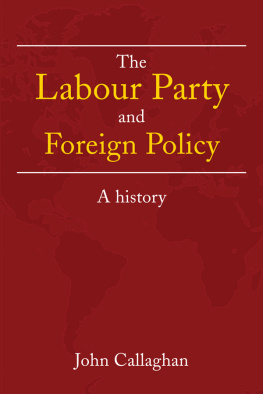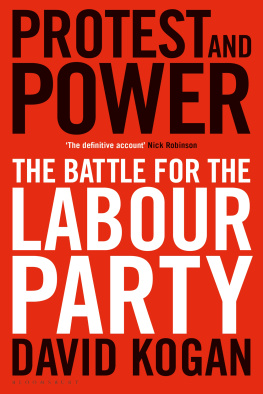Losing Labours Soul?
For what and for whom does New Labour stand? Does it remain committed to the social democratic values of equality, social justice and fellowship or has it abandoned them? In sidling up to business and sweetening Middle England has it lost interest in the less privileged?
Based on extensive original research and interviews with a wide variety of key players, this is the first compelling assessment of New Labours power record in office. Beginning with a detailed account of the development of New Labour, including the ideological tensions within the party, the author provides a sophisticated analysis of the Labour Government during an unprecedented period of power. Proceeding through a series of case studies exploring Government policy on poverty, the Private Finance Initiative, secondary education, healthcare and employment relations, this book addresses all issues which have generated a huge amount of controversy. Although with a sharp political focus it is highly interdisciplinary in approach, blending together the research findings and insights from students of healthcare, education, and social and industrial relations policy.
Offering the most detailed examination yet published of the actual performance of the party in several key social and economic policy areas, Losing Labours Soul? will be of enormous interest to students of British politics, labour history and party politics.
Eric Shaw is Senior Lecturer in Politics at the University of Stirling, United Kingdom.
Losing Labours Soul?
New Labour and the Blair Government
19972007
Eric Shaw
Published in 2007
by Routledge
2 Park Square, Milton Park, Abingdon, Oxon OX14 4RN
Simultaneously published in the USA and Canada
by Routledge
711 Third Avenue, New York, NY 10017, USA
Routledge is an imprint of the Taylor & Francis Group, an informa business
2007 Eric Shaw
Typeset in Times New Roman by Taylor & Francis Books
All rights reserved. No part of this book may be reprinted or reproduced or utilised in any form or by any electronic, mechanical, or other means, now known or hereafter invented, including photocopying and recording, or in any information storage or retrieval system, without permission in writing from the publishers.
British Library Cataloguing in Publication Data
A catalogue record for this book is available from the British Library
Library of Congress Cataloging in Publication Data
1. Labour Party (Great Britain) 2. SocialismGreat Britain. 3. Great BritainSocial policy-19794. Blair, Tony, 1953- 5. Great BritainPolitics and government21st century. I. Title.
JN1129.L32S458 2007
324.24107090511dc22
2007025391
ISBN13: 978-0-415-35499-8 (hbk)
ISBN13: 978-0-415-35500-1 (pbk)
ISBN13: 978-0-203-00161-5 (ebk)
Dedicated to the memory of my grandparents:
Jeanette Weinstein (born 1895, died Auschwitz 1942)
Maurice (Meyer) Weinstein (born 1889, died Auschwitz 194?)
The party I lead must have more than a set of policies we must have a soul.
(Gordon Browns speech accepting the leadership of the Labour party, The Independent, 28 June 2007)
Contents
Acknowledgements
In June 2007 Tony Blair resigned from the leadership of the Labour party and the premiership. Whatever ones views of Tony Blair and they range very widely no-one can dispute that he has been one of the partys seminal figures. So now appears to be the right time to take stock and reflect upon the way in which Labour has been transformed some would say out of existence during the years when he stood at its helm.
I recall a conversation a while back with an MP someone Ive know since we were at university years ago, and a very shrewd and thoughtful politician. I was reflecting on the fact that, despite a record which easily bears comparison with Labour governments in the 1960s and 1970s, the Blair Government appeared to generate an extraordinary amount of anger among its erstwhile supporters. My MP friend suggested that it was a typical case of the betrayal syndrome left-wing Labour party members who were never happier than when bewailing the perfidies of their own government. I replied that the anger extended well beyond the usual suspects (and we were not even talking about Iraq!). He paused, reflected, and then commented, you know, Eric, my wife is very angry. She is threatening not to vote Labour again! Trying to understand the reasons for that anger despite what seem to be to be the considerable accomplishments of the Blair Government helped shape the key themes of this book.
It has its origins in the earliest months of the Blair Government and it has proceeded at the pace of a tortoise on sedatives! Over the years I have accumulated many debts. I owe much to the patience and tolerance of my family who have had to put up with my distracted and ever more reclusive ways for far too long. My greatest debt, as ever, is to my wife Susan who endlessly encouraged and sustained me over the many years it took me to write this book. Without her it would never have been completed. The writing of books on the Labour party has been a strand running throughout our marriage and this, the fourth, is, I promise, the last.
I am immensely grateful to the following who read and made extremely useful comments on various chapters in the book:
: Prof. Jim Cronin and Prof. Stephen Ingle;
: Fiona Millar;
: Frank Dobson MP, Consultant Ophthalmic Surgeon Simon Kelly, Prof. Julian Le Grand, Consultant Physician Norman Peden, Prof. Martin Powell, Simon Stevens, Consultant Neurophysiologist Aline Russell;
: Dr Steve Ludlam; Employment Law specialist Brian Morron.
I would like to thank Jonas Hinnfors who read a number of chapters and John Callaghan and Luke Martell who very generously read and commented on the whole of the manuscript.
The following also provided invaluable assistance in lots of different ways: Charlotte Atkins MP, Liz Atkins, Tony Duckworth, Simon Kelly, John McTernan, Martin Powell and Perri 6.
Thanks too to Craig Fowlie of Routledge for his patience and understanding after, well, one or two broken deadlines.
I would like to acknowledge the help of the Carnegie Foundation for Scotland for providing help with travel and accommodation expenses.
Finally, I would like to acknowledge the contributions made by many people, both inside and outside the Labour party in many discussions over the years, which have helped me to come to such understanding as I have of the Labour party.
A note on sources
I have sought, as best I can, to ensure that ever major point, interpretation advanced and conclusion reached in this book is supported by evidence. I have inspected a host of documents over the years and have drawn heavily upon them. These include House of Commons Select Committee reports and minutes of evidence; the reports of the Audit Commission and the National Audit Office; Government White Papers and press releases and reports from a range of other government agencies and bodies. Studies produced by specialist research institutions, such as the Kings Fund, the Institute for Fiscal Studies and the Rowntree Foundation, have been an indispensable source of data and interpretation. Press reports have also proved extremely useful and the Guardian web site invaluable. I have ransacked journals from a wide range of disciplines including healthcare, education, social policy, industrial relations and contemporary history as well as, of course, politics.

